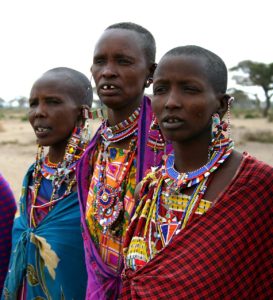Photo by Mary Taylor from Pexels
In the summertime you probably get tired of using the adjective hot, no matter how useful it is. Thankfully there are plenty of synonyms for hot that you can use to be more precise.
It’s Hot Today!
Let’s start with the basic adjective, hot. Hot of course means the opposite of cold, heated, having a high temperature. With food or drink, you may hear piping hot, meaning very hot.
- I spilled piping hot coffee all over myself!
- The soup is piping hot. Blow on it before you eat it.
- It’s really hot today, but it can get even hotter.
- Death Valley, CA, is one of the hottest places in the world.
- You feel really hot. I think you have a fever!
Hot can also mean a few other things, though.
- I love Thai food, because I love hot food.
(hot = spicy, with chili pepper) - This is one of the hottest neighborhoods to live in.
(hot = very popular, trendy, in demand) - Have you seen Carla’s boyfriend? He’s really hot!
(hot = beautiful, handsome, sexually attractive) - Emotions are a bit hot now, so let’s wait and discuss this after we’ve all calmed down.
(hot = emotionally active, angry, intense) - Don’t buy a laptop on the street from a stranger, it’s probably hot.
(hot = stolen)
It Was a Heated Argument
If you make something hot, you heat it.
- The sun heats the earth.
- There’s leftover pizza, but it’s cold so you have to heat it up.
- I heated some water in the microwave.
Heated – as an adjective – can mean literally made warmer/hotter, or emotionally intense.
- We don’t use this room in the winter, so it isn’t heated.
(heated = supplied with heat) - They got into a heated argument.
(heated = emotionally intense)
Heat is also the noun form. If you’re very hot, you can say that you’re dying of heat.
- I don’t like the heat. I prefer the winter.
- I’m dying of heat! Please turn the air conditioner on!
- Is the heat on? It feels cold in here.
Ouch, That Burns!
The verb to burn means to heat something too much, to add too much heat, or to be very hot.
- I burned the toast! I need to make more.
- Don’t touch the hot pan, you’ll burn yourself.
- Ouch! The sand burns! Don’t walk on it with bare feet.
- You’re burning up. You have a high fever.
I’m Sweating My Butt Off!
When it’s hot, people sweat, so there are lots of expressions using the word sweat that describe hot weather and people’s reaction to it. The adjective sweaty can describe weather that makes you sweat, or it can describe you if you’re sweating. Drenched means very wet, so you can say that you’re drenched (in sweat) if you’re very hot.
- It’s really hot in here. I’m sweating!
- I’m sweating to death in this suit. I want to put on shorts and a tee shirt!
- It’s going to be a hot and sweaty day today.
- I’m hot and sweaty after running, so I need to shower.
- It’s hot out there. I’m drenched!
If you’re really hot, you can say that you’re sweating your [body part] off. Which body part you use will depend on who you’re speaking to, and how familiar (or vulgar!) you want to be! The safest thing to say is sweating my butt off. Butt is a familiar word for your behind/bottom/the part of your body that you sit on. You can say that you’re sweating your ass off, but only use that in very familiar situations with friends. Ass is a more vulgar way to say butt. Men will sometimes say that they’re sweating their balls (testicles) off, and that’s definitely something you only want to use in very, very casual settings. Women may say it too, and it sounds pretty funny coming a woman!
- I’m sweating my butt off in here! Let’s go outside and get some fresh air.
- I worked in a hot kitchen sweating my ass off all day! I want to relax now.
- Oh, man, I’m sweating my balls off. I can’t stand this heat.
It’s Boiling, Steaming, Blistering Hot, and I’m Melting!
To boil water means to heat it to 100C/212F. So if something is boiling, it’s very hot!
- Do you boil water on the stove or in an electric kettle?
- You don’t need to bring your jacket, it’s boiling hot today!
- I’m boiling in here. Can we open a window or put the air conditioner on?
To steam means to cook something with steam or hot water vapor, or it describes something that is so hot that it gives off steam. Steamy refers to something hot and humid.
- I’m on a diet, so I usually eat steamed instead of fried vegetables.
- The roads were so hot that they were steaming after the rain.
- August is always hot and steamy.
If you burn your skin, you will probably get a blister – a wound that’s filled with liquid. Since intense heat causes blisters, you’ll hear blistering to describe very hot days.
- Wow, it’s blistering hot out there. I’m staying inside!
- We’ve had three weeks of blistering heat, so we really need rain soon.
- The wildfires have been caused by blistering heat and a long drought.
To melt means to turn from ice into water, or from a solid into a liquid. Things melt when the temperature rises, so if you’re really hot, you can say that you’re melting.
- Please open a window! We’re melting in here!
- It’s so hot today I know I’m going to melt the moment I go outside.
It’s Sweltering!
To swelter means to be very uncomfortable because of the heat. You’ll often hear the adjective sweltering to describe very hot and very uncomfortable weather.
- I can’t believe how hot it’s been! It’s sweltering!
- I hate wearing my uniform in the summer because I swelter in it.
- In a few weeks the sweltering temperatures of summer will be gone.
Baking, Roasting, Frying, and Broiling on a Sizzler of a Day
You’ll often hear the verbs to bake, to roast, to broil and to sizzle in relation to food and cooking, but in conversational English you can use them to describe the hot weather, or how you feel in the hot weather. To bake is to cook inside an oven for a long time. Typical things that are baked are bread, pies, or cookies, but other things like potatoes, seafood, fish, chicken, etc. can be baked.
- Are you baking cookies? It smells so good in here!
- If you lie there baking in the sun you’re going to get a bad sunburn.
- The air conditioner doesn’t work in my car, so we’re going to bake.
To roast is to cook (typically meat or fish) in an oven by exposing it to heat for a long time. Roasting is very similar to baking, but the heat is higher.
- We’re roasting a chicken for dinner tonight.
- How is that man wearing a jacket today in this heat? He must be roasting!
- I’m roasting. I’m going to take a dip in the pool to cool off.
To fry is to cook in oil. Frying involves very hot oil, so you can say that you’re frying if you’re very hot. If someone gets a bad sunburn, you can also say that they’re fried.
- Fried chicken is a very popular food.
- I’m really frying sitting in the sun. I need to go into the shade.
- You’d better put on sunscreen, or you’ll fry in the sun. You’re really going to be fried.
To broil is to cook (usually meat or fish) with very high heat. Steak that’s cooked right under the flame or heat source in the oven is broiled. If you’re standing in the hot, hot sun, you can say that you’re broiling.
- Don’t overcook the fish! It only needs to be broiled for a few minutes.
- Let’s not stand here broiling in the sun. Let’s go inside.
- It’s too hot today. We’ll broil if we try to eat outside, so let’s eat inside.
To sizzle mean to make a hissing noise (like ssssss…) when placed on a heat source, for example a hot pan or hot oil. When you add food to hot oil to fry it, it sizzles. Sizzle can also be used to describe something that’s very hot. A sizzler is a very hot day.
- The pan was very hot when I put the chicken on, so it sizzled loudly.
- I need to get out of the sun. I’m sizzling!
- It’s going to be a real sizzler today, with temperatures reaching 90F/32C.
It’s an Oven in Here!
The oven is the enclosed space where you bake or roast or broil food. An oven is a very hot place! So unsurprisingly, you can use oven in expressions that mean it’s very hot. A furnace is also a very hot place; it’s where oil or gas or something else is burned to produce heat or hot water for a home or building. You’ll see the word furnace is a lot of hot expressions. A sauna – as in Finland – is also a hot place.
- It’s like an oven in here! Can you open the window or put on a fan or something?
- I want to go for a run, but it’s like a furnace outside. I think I need to wait until the sun sets.
- It’s a sauna in this room! Don’t you have air conditioning?
The Sun is Blazing. It’s Scorching Hot!
A few verbs related to flames or burning are also used to talk about hot weather. To blaze means to burn very energetically and brightly, to give off a lot of heat.
- I’ve just put more logs on the fire, so it’s blazing right now!
- It’s noon, so the sun is blazing in the sky.
- Jill works in a restaurant, so she stands in front of a blazing hot oven all day.
To scorch means to burn the surface of something with a flame or other heat source. For example, if one house catches on fire and burns to the ground, the house next door may not catch on fire, but there will probably be burns on the surface: the second house will be scorched by the nearby fire. Scorch is also used to mean very intensely hot days or very high heat.
- It’s going to be a scorcher today, so stay inside in the air conditioner if you can.
- It hasn’t rained for weeks, and the weather has been really hot, so the grass is scorched.
- We went to the park but it was scorching hot, so we didn’t stay for a long time.
Sear, Singe, Scald
The verbs to sear and to singe are similar. They both mean to burn the surface of something, but sear means to burn with sudden strong heat, and singe means to burn with light heat, and to cause much less damage.
- If you fry scallops quickly on high heat, you’ll sear the surface nicely.
- It looks like it’s going to be a searing hot day today.
- I reached into the fire to put on another log, and I singed the hair on my arms!
- We’ve had such a heat wave, my plants all look singed!
To scald is to burn with boiling water or steam. You can use it describe very hot water or a hot, steamy day.
- I reached over the boiling kettle and scalded my arm.
- Be careful of the water in the shower! It gets scalding hot!
- I really don’t like the scalding hot and humid days of August!
They Had a Torrid Affair in the Sultry Summer
Two more words that you may come across to describe the heat are the adjectives torrid and sultry. Torrid means very hot and very dry, so you’d probably experience torrid conditions in a desert. But figuratively, torrid means hot as in (sexually) passionate. The expression “torrid affair” means a very passionate, emotional, sexually charged relationship.
- The people in the desert are used to torrid conditions.
- It was an absolutely torrid day in Arizona.
- Even though none of their colleagues suspected a thing, Jack and Terry were having a torrid affair.
Sultry is another word related to heat, both meteorological and sexual. When you’re talking about the weather, sultry means hot and humid, similar to steamy. If things are torrid in the desert, they’re sultry in the rain forest. Sultry can also mean sexually attractive or suggestive.
- The weather was sultry, but thankfully there was a light breeze.
- When I think of New Orleans I think of sultry summer days.
- He had a sultry look in his eyes when he asked if he could buy me a drink.
Learn English with the Language Garage!
If you’re interested in ESL/EFL lessons, please check out our English courses. We have private lessons, lessons for you and a friend or colleague, or small groups. Or see our other posts on English grammar, vocabulary, and more.






